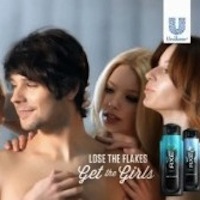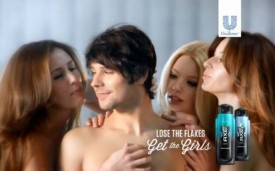
 The stereotypical male is a common figure in television and Internet-based advertisements. Men grunt, watch sports, party and seem to have a testosterone-fueled take on life, especially in ads that focus on primarily male-oriented products like beer and aftershave. The overriding sentiment in modern marketing is that men want products that affirm a sort of over-the-top masculinity.
The stereotypical male is a common figure in television and Internet-based advertisements. Men grunt, watch sports, party and seem to have a testosterone-fueled take on life, especially in ads that focus on primarily male-oriented products like beer and aftershave. The overriding sentiment in modern marketing is that men want products that affirm a sort of over-the-top masculinity.
However, according to new research from the University of Illinois, these stereotypical advertisements might actually have a negative effect on their target audiences.
A group of researchers released the study in “Gender, Culture, and Consumer Behavior,” a book published this year by Routledge Academic. The researchers found that men were often offended by stereotypical advertisements. Some men decided to categorically avoid certain brands because they didn’t want to be like the men in the brands’ advertisements.
[ad2]
“While partying and promiscuity are often depicted in advertising, some men find these images to be negative portrayals of their gender and are, in fact, turned off by them,” said Cele Otnes, Professor of Marketing at the University of Illinois. “[The stereotypes] don’t actually fit the vast majority of males. Advertisers and marketers need to broaden the spectrum.”
This means focusing less on macho stereotypes such as beer-swilling sports fans and crafting smarter ads that cater to the real roles that men play in their daily lives. Advertisements that show fathers, husbands or students, for instance, might have more of an impact with men who fill those roles. Showing men in realistic situations might have more of an impact that focusing on outlying gender stereotypes, and these types of depictions will certainly offend fewer viewers.
The researchers also noted that they had a non-stereotypical male figures in large advertising campaigns. If marketers and advertisers want to take advantage of the research by creating less stereotypical spots, they will not run up against much competition.
“Peuple build up certain offensive and defensive strategies when they look at ads,” said Otnes. “If a man is turned off by how males are portrayed in an advertisement, he’ll say, ‘I don’t want to be that guy.'”
More specifically, that study is Chapter 4 in the book, starting on page 87. (Check out a preview on Google Books). It is titled “Climbing the Ladder or Chasing a Dream? Men’s Responses to Idealized Portrayals of Masculinity in Advertising. It was written by Linda Tuncay Zayer and Cele C. Otnes. (Most people wouldn’t refer to a pair as a group).
Your quotes are from an August 1st press release:
http://news.illinois.edu/news/12/0801advertisingmasculinity_CeleOtnes.html
The testosterone-fueled stereotype does annoy me — but nowhere nearly as much as the stereotype of husbands/fathers as incompetent and immature, the stereotype of men in general as less competent than women. Then, there’s the rule that violence against me (even with severe injuries) is somehow “funny.” Those stereotypes are doing far more damage to the fabric of our society than the stereotype this column complains about.